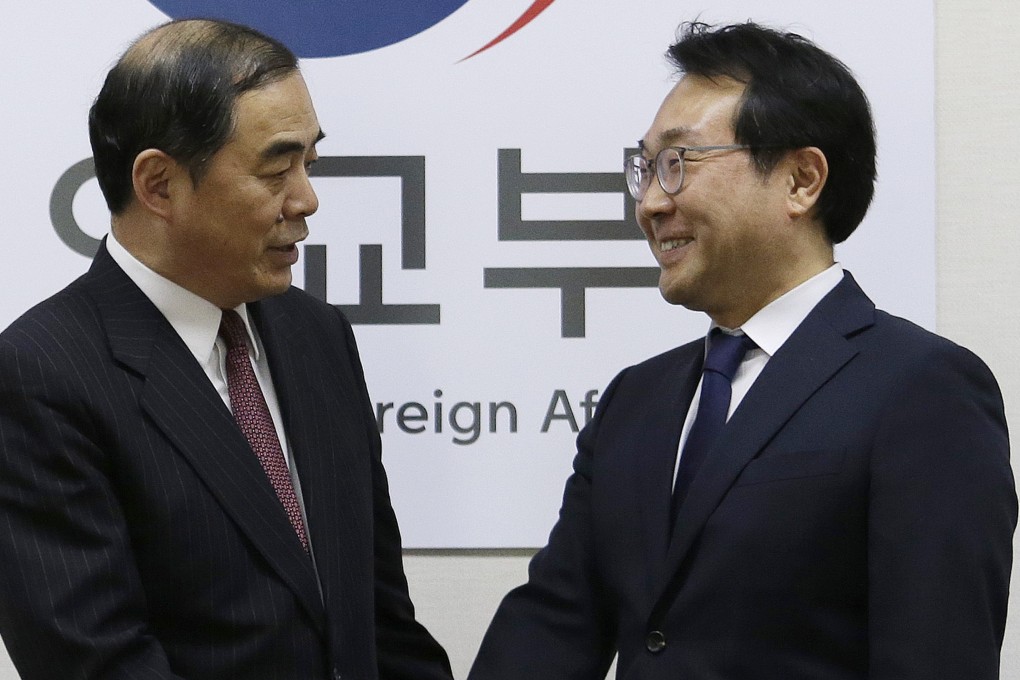China and South Korea vow to work for permanent peace on peninsula ahead of second Trump-Kim summit
- Senior diplomats meet in Seoul just weeks before second Trump-Kim summit
- Beijing determined not to be sidelined in denuclearisation process

China and South Korea have vowed to work together for permanent peace on the Korean peninsula – just weeks before the anticipated second Trump-Kim summit – in a reflection of Beijing’s increasing clout over the process.
Senior diplomats from the two countries sat down for denuclearisation talks in Seoul on Thursday, just as North Korea’s top negotiator headed to Washington – via Beijing.
China’s special representative for Korean peninsular affairs Kong Xuanyou met his counterpart Lee Do-hoon in the South Korean foreign ministry and promised to cooperate for the greater stability of the region.
“The Chinese side will communicate strategically with the South Korean side on Korean peninsula matters, and we will proceed together [with the South Koreans] for the progression of a diplomatic solution to the peninsula situation,” Kong said.
“The new year marks a historical starting point to the Korean peninsula situation,” he added, emphasising China’s role on the peninsula.
Senior North Korean official Kim Yong-chol reportedly bound for Washington to meet President Donald Trump
Lee, calling for Beijing’s support, said there was still “a long way to go” before peace could be achieved.